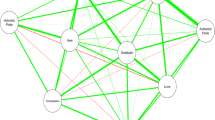Abstract
The conceptual distinction between emotion and nonemotion subjective states was investigated in a series of three studies. Three questions were addressed. First, is there high agreement among people in identifying labels for subjective states as either emotion or nonemotion? Second, in judgments of the similarity of subjective states is the emotion-nonemotion distinction more or less salient than other properties of experience? Third, what criteria are used to distinguish conceptually between emotion and nonemotion states? Results indicated that, for many feeling states, there is no substantial agreement as to whether the state should be considered emotion or nonemotion, that the affective dimension of experience is not as salient as are other specific properties of experience (physiological arousal, activity level, valence), and that, in general, people express their individual judgment of emotion-nonemotion on the basis of some nonspecific combination of physiological arousal and character of cognitive state.
Similar content being viewed by others
References
Averill, J. R. (1975). A semantic atlas of emotional concepts.Psychological Documents, 5 330.
Block, J. (1957). Studies in phenomenology of emotions.Journal of Abnormal and Social Psychology, 54 358–363.
Bush, L. E. (1973). Individual differences multidimensional scaling of adjectives denoting feelings.Journal of Personality and Social Psychology, 35 50–57.
Davitz, J. R. (1969).The language of emotion. New York: Academic Press.
Izard, C. E. (Ed.) (1979).Emotions in personality and psychopathology. New York: Plenum.
Lutz, C. (1982). The domain of emotion words on Ifaluk Atoll.American Ethnologist, 9 113–128.
Plutchik, R. (1962).The emotions: Facts, theories and a new model. New York: Random House.
Plutchik, R. A. (1980). A general psychoevolutionary theory of emotion. In R. Plutchik & H. Kellerman (Eds.),Emotion: Theory, research, and experience, Volume 1: Theories of emotion New York: Academic Press.
Rosch, E., Mervis, C. G., Gray, W., Johnson, D., & Boyes-Braem, P. (1976). Basic objects in natural categories.Cognitive Psychology, 8 439–483.
Russell, J. A. (1978). Evidence of convergen validity on the dimensions of affect.Journal of Personality and Social Psychology, 36 1152–1168.
Russell, J. A. (1980). A circumplex model of affect.Journal of Personality and Social Psychology, 39 1161–1178.
Russell, J. A., & Mehrabian, A. (1974).An approach to environmental psychology. Cambridge: M.I.T. Press.
Shimanoff, S. B. (in press).Linguistic references to emotions in naturally occurring conversations.
Author information
Authors and Affiliations
Additional information
This research was supported by a Faculty Research Grant from the University of California, Davis. Thanks to Julie Mogerman, Rachel Dixon, and Paulette Lathom for their assistance in various phases of this project. Special appreciation for their generous and competent research assistance is due to Shon Dickson (Study 1 and 2) and Robert Fox (Study 3).
Rights and permissions
About this article
Cite this article
Shields, S.A. Distinguishing between emotion and nonemotion: Judgments about experience. Motiv Emot 8, 355–369 (1984). https://doi.org/10.1007/BF00991873
Issue Date:
DOI: https://doi.org/10.1007/BF00991873




